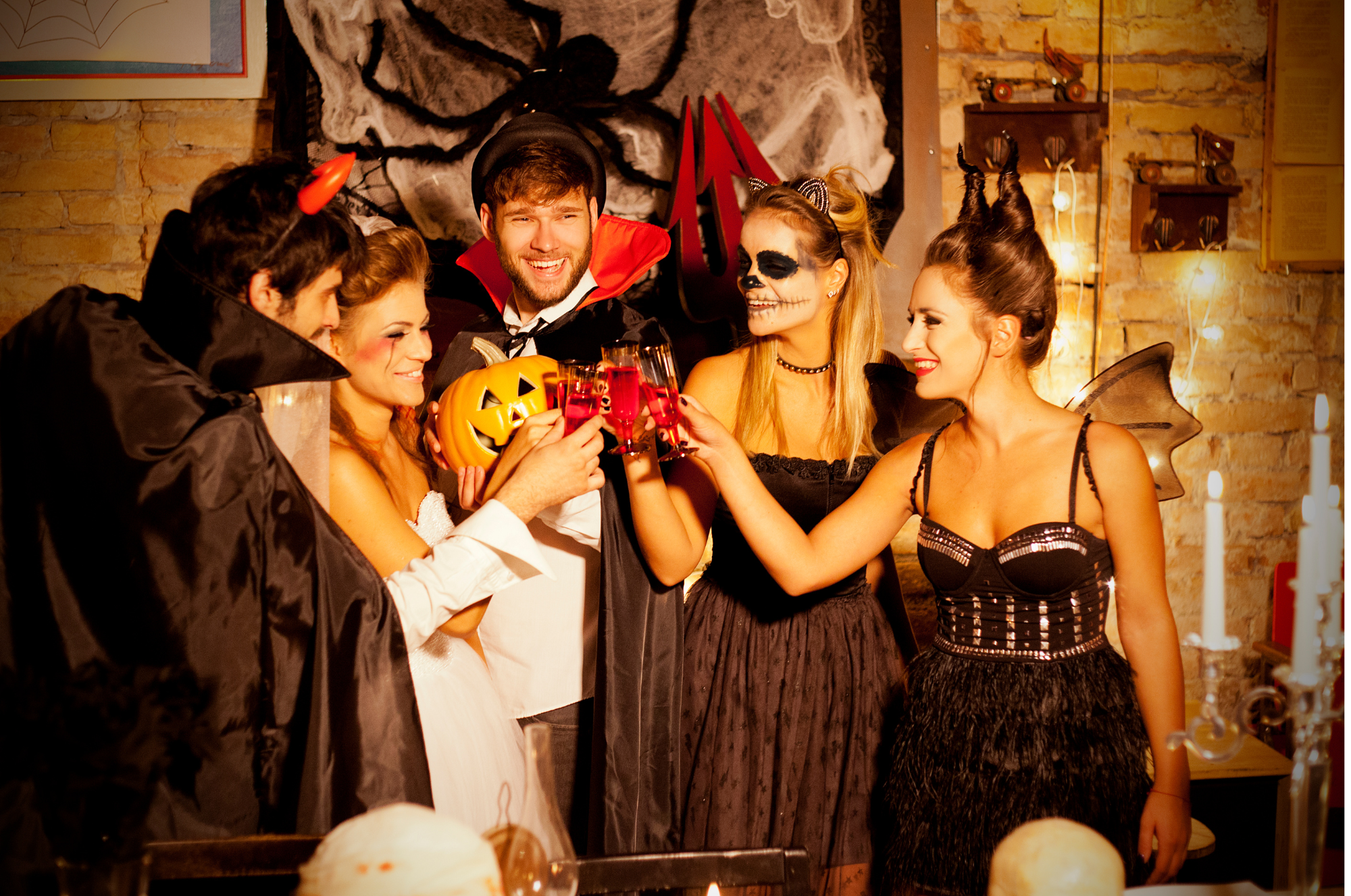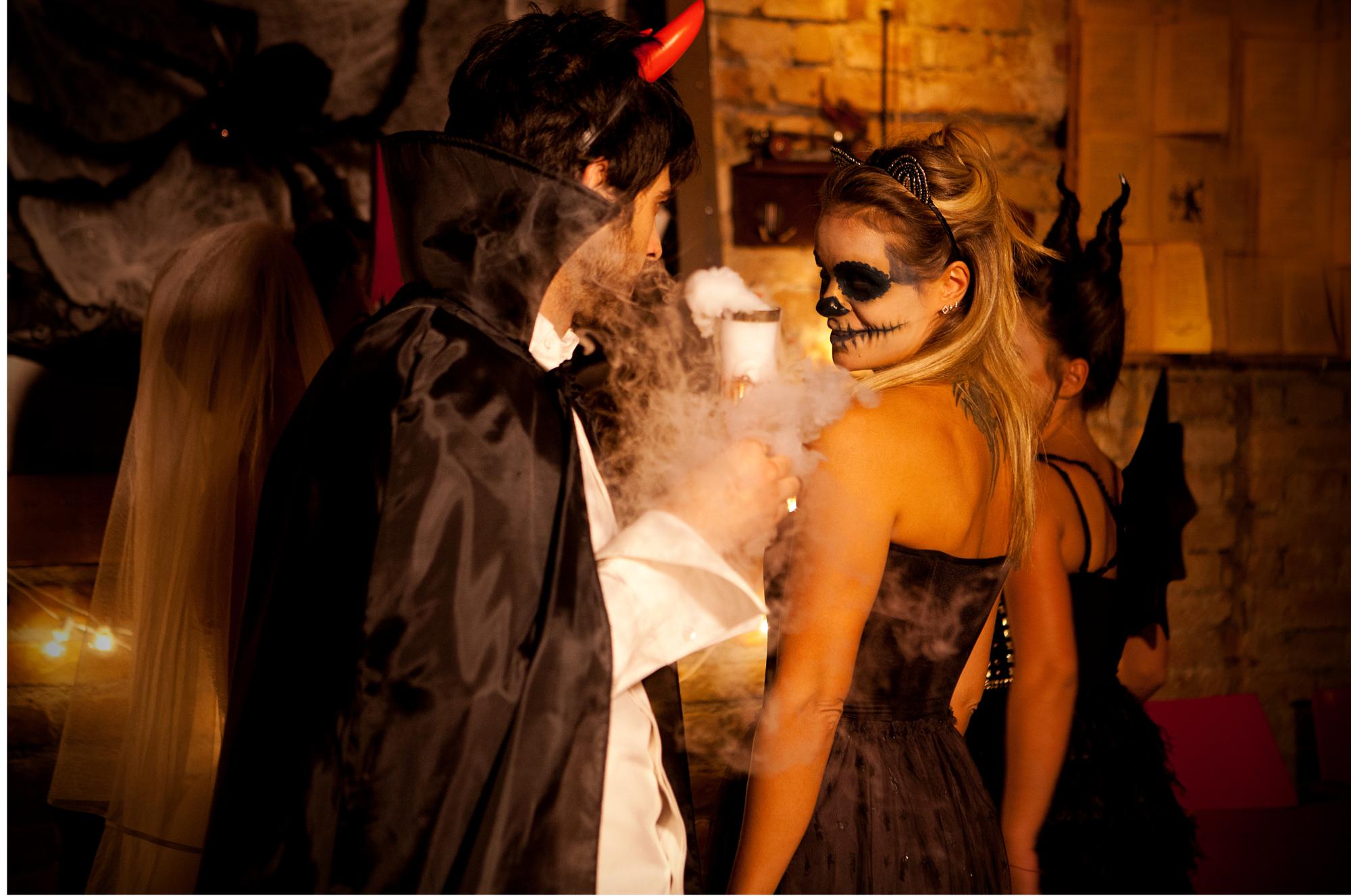Navigating Consent in Spooky Nights: Halloween, Substances, and Safe Choices
Halloween is a night of fantasy, costumes, and revelry. It's a time when adults often gather to celebrate with themed parties and events. While Halloween is a time for fun and excitement, it's essential to remember that consent remains a vital aspect of any sexual encounter. In situations where substances are used, such as alcohol or recreational drugs, the importance of clear and informed consent becomes even more critical. This blog post aims to guide you through the nuances of expressing and reading consent in sexual situations during Halloween festivities involving substances, with a focus on maintaining safe and respectful encounters.
Understanding Consent
Consent is the cornerstone of any healthy sexual interaction, and it must be freely given, informed, enthusiastic, and revocable at any moment. Consent should be ongoing and can be withdrawn at any point during an encounter, regardless of the context or substances involved. Halloween parties often involve the consumption of alcohol or other substances, which can impact one's ability to give or perceive consent clearly.
Communicate Openly and Clearly
Effective communication is key to navigating sexual situations on Halloween, especially when substances are involved. Open and honest discussions about boundaries, desires, and expectations can help ensure that everyone is on the same page. It's essential to use clear and straightforward language when discussing consent, even when wearing costumes or adopting playful personas.
Be Mindful of Non-Verbal Cues
While verbal communication is vital, it's equally important to pay attention to non-verbal cues. Subtle changes in body language, facial expressions, or tone of voice can provide valuable information about a person's comfort level. However, it's crucial not to make assumptions based solely on non-verbal cues. Always seek verbal confirmation of consent when in doubt.
Respect Boundaries and Limits
Respecting boundaries is a fundamental aspect of obtaining and maintaining consent. People have different comfort levels and boundaries, which can change depending on the substances they've consumed. Always be attentive to your partner's signals and be ready to adjust your actions accordingly. If someone says "no" or seems hesitant, respect their decision without pressure or coercion.
Avoid Preying on Vulnerability
Substances can impair judgment and decision-making, making individuals more vulnerable. It's crucial to recognize and respect this vulnerability rather than exploiting it. Taking advantage of someone who is intoxicated or under the influence is unethical and unacceptable. Always aim for equitable and respectful interactions.
Consent and Incapacitation
When substances are involved, it's essential to understand the concept of incapacitation. Incapacitation occurs when an individual is unable to provide informed and voluntary consent due to the effects of alcohol or drugs. Engaging in sexual activity with someone who is incapacitated is not only morally wrong but also illegal in many jurisdictions.
Halloween is a time for playful and spooky fun, but it should also be a time for responsible and respectful behavior, especially when it comes to sexual encounters. Consent is non-negotiable, and it remains crucial even when substances are part of the celebration. Open and clear communication, mindfulness of non-verbal cues, respecting boundaries, avoiding preying on vulnerability, and understanding incapacitation are all essential aspects of navigating consent during Halloween festivities.
As we celebrate Halloween, let's remember that consent isn't something to be spooked by or taken lightly. It's a fundamental and ongoing aspect of healthy sexual interactions that deserves our attention and respect. By adhering to these principles, we can ensure that Halloween remains a fun and enjoyable holiday for all, free from the specter of non-consensual encounters.
Do you want to learn more about starting therapy services with Rouse Relational Wellness? Click the button below to request a free consult:
References:
Abbey, A., Clinton-Sherrod, A.M., McAuslan, P., Zawacki, T., & Buck, P.O. ( 2003). The relationship between the quantity of alcohol consumed and the severity of sexual assaults committed by college men. Journal of Interpersonal Violence, 18, 813-833.
Gidycz, C.A., Dowdall, C.L., & Marioni, N.L. ( 2002). Interventions to prevent rape and sexual assault. In: J. Petrak & B. Hedge (Eds.), The trauma of adult sexual assault: Treatment, prevention, and policy (pp. 235-260). New York: John Wiley & Sons.
Kilpatrick, D.G., Resnick, H.S., Ruggiero, K.J., Conoscenti, L.M., & McCauley, J. ( 2007). Drug-facilitated, incapacitated, and forcible rape: A national study (Report NCJ219181). Washington, DC: U.S. Department of Justice, National Institute of Justice.


